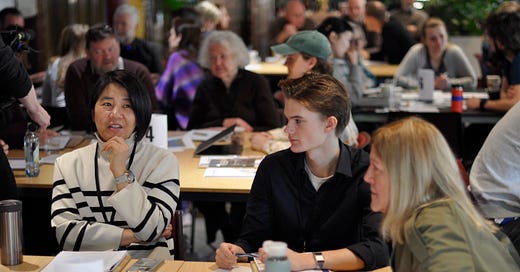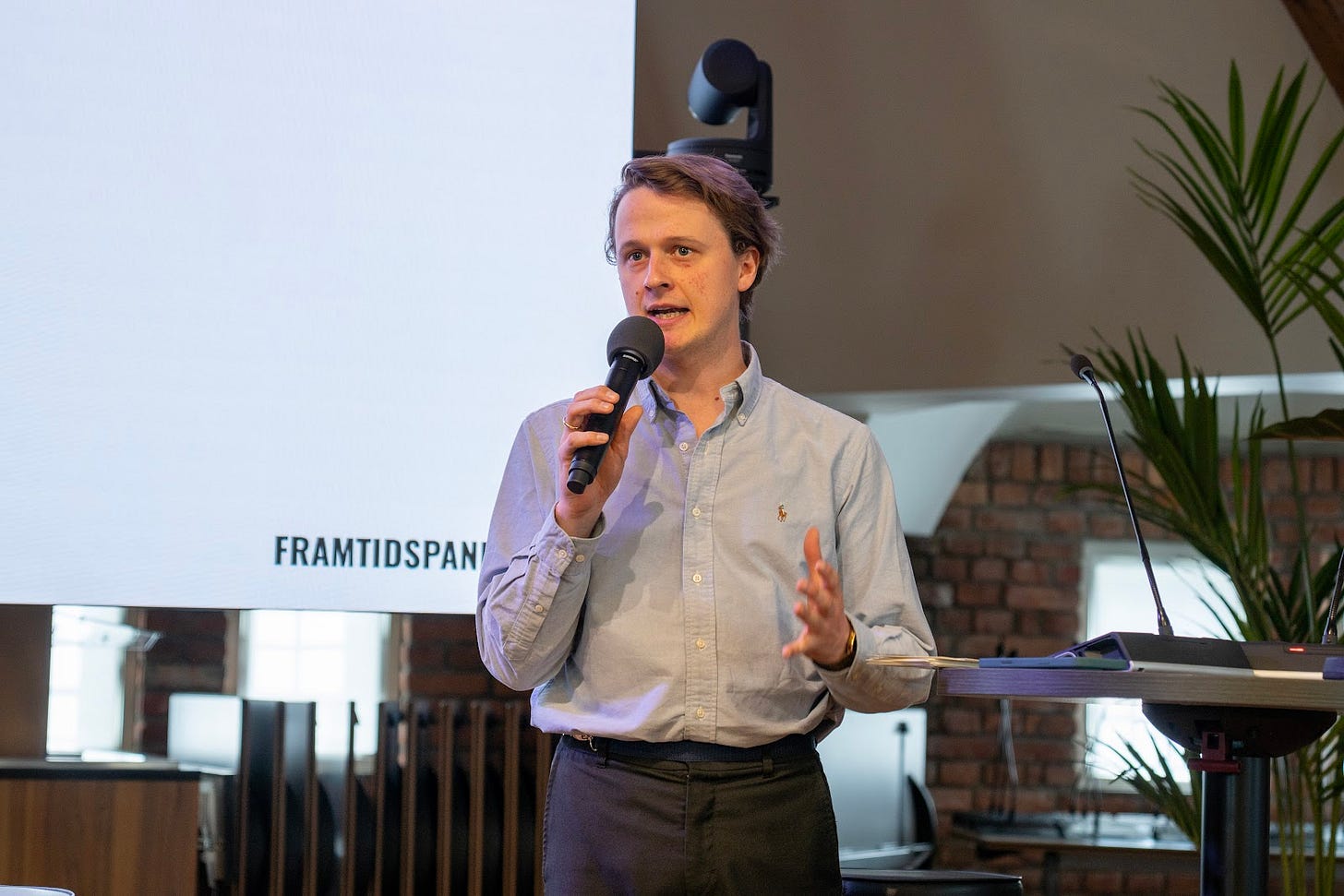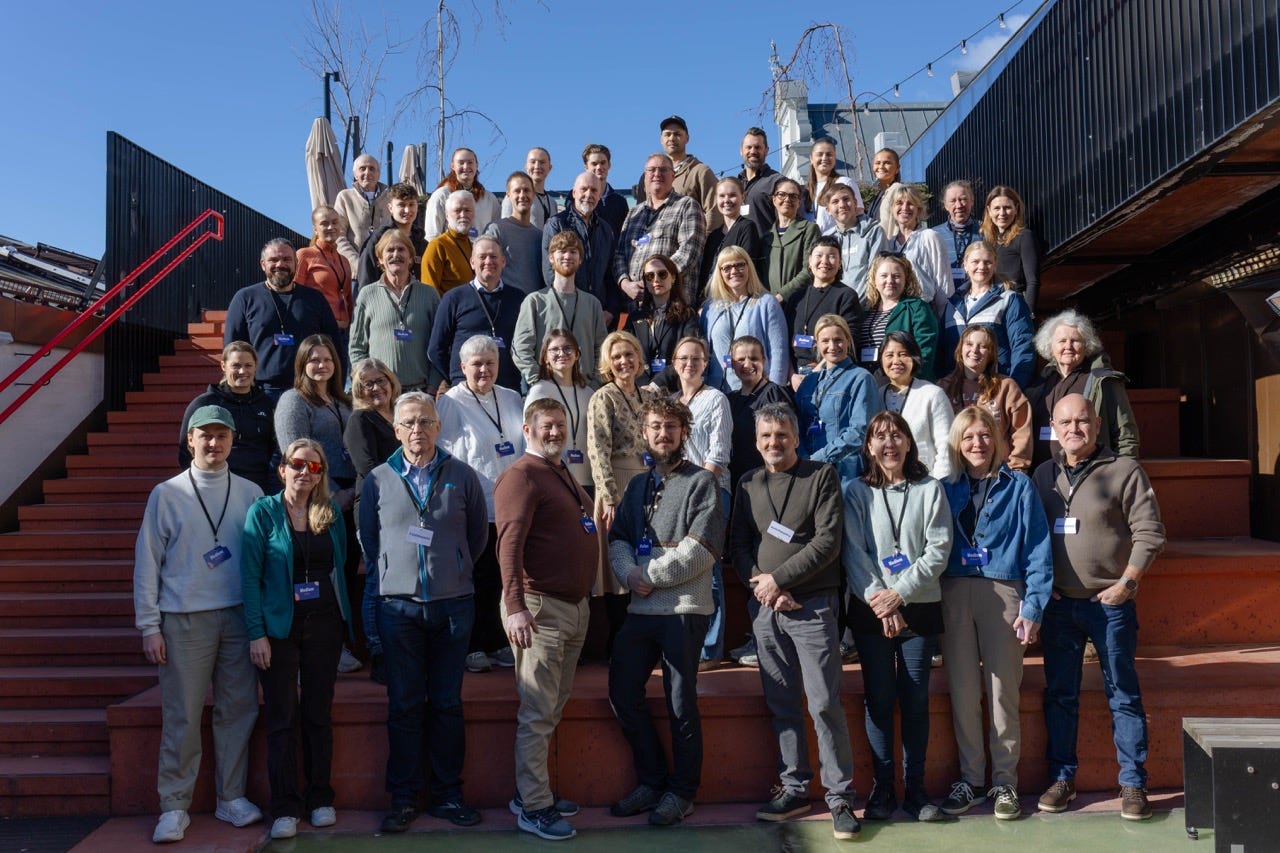Norway's citizens want to share their fortune with future generations and the world
In this week's DemNext Deep Dive, Hugh Pope, DemocracyNext International Advisory Council Member, speaks with members and organisers of Norway's Future Assembly on the Oil Fund
Each of Norway's 5.5 million inhabitants has a theoretical $300,000+ stake in the country's $1.8 trillion Oil Fund. But what would they actually like to do with it? Who should decide that? And how?
Norwegians have struggled for decades over whether the world's largest investment fund is their private nest egg or a golden opportunity to exercise their global conscience on matters like climate change, sustainable economic policies or development aid. To strike the balance, a coalition of seven Norwegian non-profits this year organised the most representative forum yet: a randomly selected citizens' assembly.
The 56 members of the Framtidspanelet, or Future Assembly, met from January to April 2025. The organisers asked them to learn and deliberate about the future use of their huge Government Pension Fund Global (GPFG), usually called the Oil Fund. Norway set up the Oil Fund in the 1990s to absorb state oil and gas profits, invest them abroad, and shield the domestic economy from ups and downs. The government can spend the Oil Fund's investment income, set at a limit of 3% of the fund's value. This usually amounts to 20% of the government budget.
The idea was that the assembly's recommendations might spark a national conversation on the topic, particularly ahead of Norway's next general elections in September 2025.
A common-sense path
After weighing all the information presented to them – including the Oil Fund's legal duties to manage Norway's surplus hydrocarbon revenues, ensure financial stability, and benefit future generations – the Future Assembly did more than look at spending. The citizens mapped out common-sense, long-term ideas for Norway that balanced domestic needs and global responsibilities.
The citizens grouped their 19 recommendations into five main themes that gave decision-makers a clear and holistic view of what a fully informed nation likely thinks the priorities should be:
🧭 Draw up new spending and ethical guidelines for the Oil Fund, notably to strengthen its ability to respond to crises
🧑🏾🤝🧑🏻 Upgrade Norway's democracy with better civic education and more citizens' assemblies
😷 Shoulder global work on public health, medical research, and the climate crisis
☀️ Back reduced consumption and develop sustainable energy projects, even if investment risks are higher and returns are lower
🏫 Support Norway's domestic need for more education, defence, research, and innovation.
“Norway's oil money should not just be the world's biggest piggy bank," 31-year-old Assembly member Jonas Krogh told DemNext, speaking from his home in the southeastern city of Fredrikstad. "It should help make the world a better place."
More citizens’ assemblies
Remarkably, 89% of assembly members backed recommendation #5 that "citizens’ assemblies should be used more and, if they prove effective, become a permanent part of the parliament's permanent decision-making processes." The members asked politicians to commit to listen to and assess the recommendations from citizens' assemblies so that more people have a "concrete and direct" participation in politics, more diverse voices could be heard and more social groups could give input for decisions.
The assembly also called for an independent Commissioner for Future Generations, more civic education in schools, and more direct tools "to vote on major matters of principle", alongside strengthened "education about politics and the democratic process."
"Taking part in this process has taught me that it helps to talk with people who think differently from me — and that we can find common ground. Personally, I’m surprised by how my views have changed on topics I never thought I’d reconsider,” Bjørnar Hansen, a 63-year-old from the central Norwegian town of Brønnøy, was quoted as saying in the final report.
Hansen was not alone. All citizens signed the report's introduction to say that, "many of us have experienced this as one of the most meaningful things we have been part of … this has been democracy in practice. A reminder that we are not just citizens – we are also co-creators of the future."
As Jonas Krogh put it to DemNext:
"A lot of people may have felt it was anti-climatic that we did not recommend specifics like new roads or free lunches in schools. Most of us, when we started the assembly, also thought we'd be very exact about how we'd spend our Oil Fund money. As time went on, these thoughts got pushed away. We realised that in the grand scheme of things what an individual is so passionate about is not so relevant. We are not experts and we can leave these details to others. We all met around the fact that we want the money for our future generations. What we care about is other people than ourselves."









